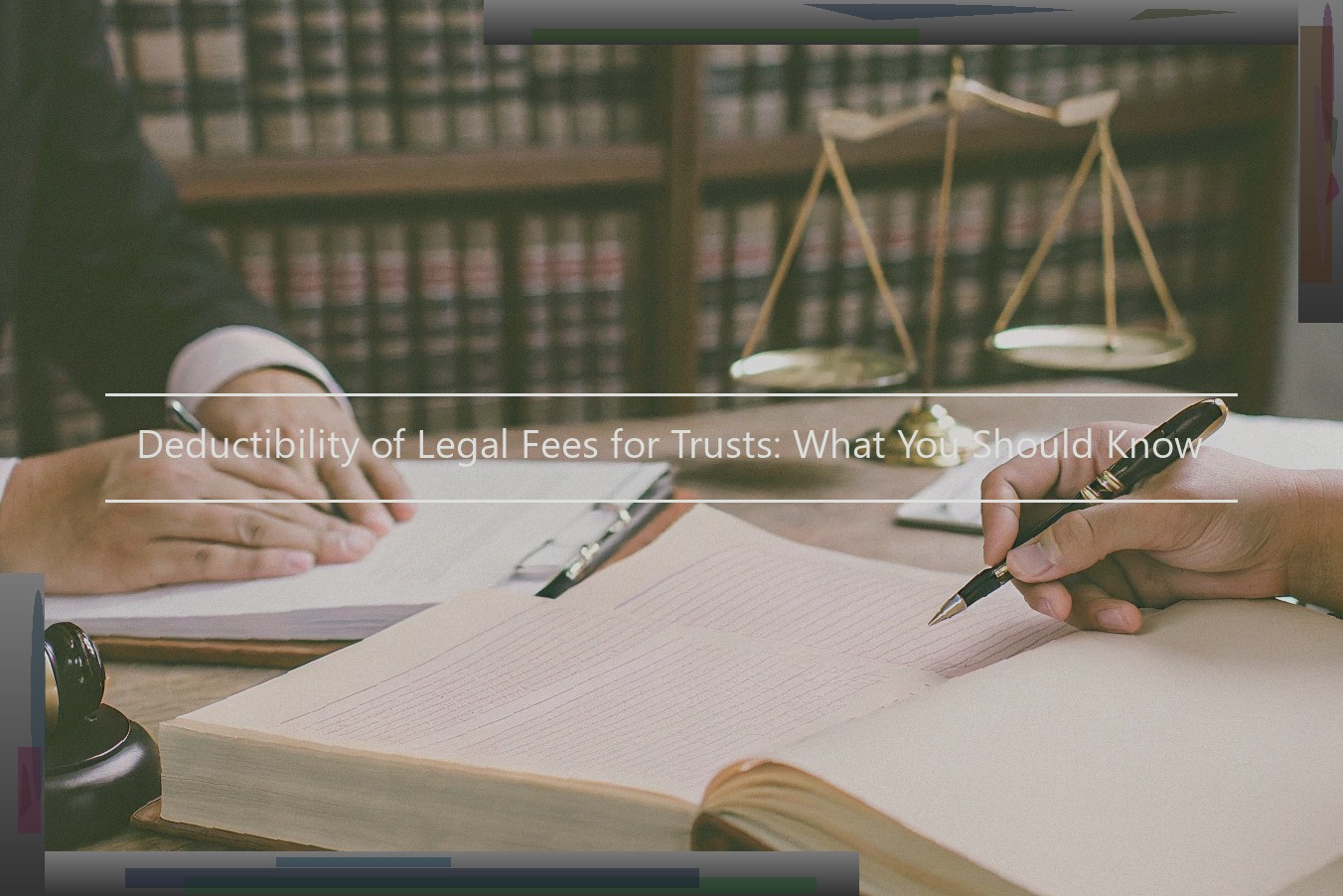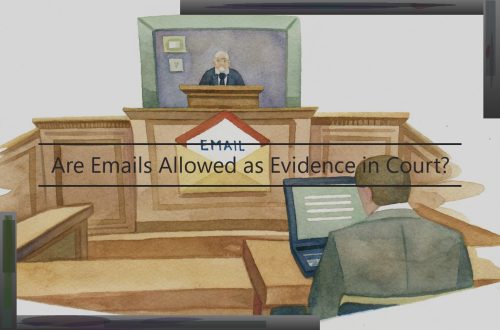Deductibility of Legal Fees for Trusts: What You Should Know
Trust Expenses and Legal Fees
Legal fees widely vary according to your legal needs. Legal fees for trusts include establishing different types of trusts, providing post-death administrative services, and representing executors and trustees in disputes. If a trust is established by will, the deceased person likely incurs those legal fees as part of general estate administration, and the Estate bears the cost. When a Trust is established during one’s lifetime, the legal fees may be deductible when determining the individual’s net income for the year. This often results in a current tax deduction to the person who established the Trust (or received capital distributions from the Trust) to pay for taxes on income allocated or distributed to him or her from the Trust. If a Trust or Trustee incurs legal fees in managing the Trust, those fees may be deductible against the Trust’s or Trustee’s net income if paid in the taxation year or within 90 days after the end of the taxation year that they relate to. It is important to remember these legal fees do not include commissions charged by the Trustee or Trust Corporation, which are not tax deductible.
Common types of legal fees incurred for Trusts:
- Establishment of Discretionary Trusts – these involve complex statutory and common law issues, which are beyond the scope of this blog. Setting up an estate freeze trust also requires legal expertise, as the goals of the deceased must be carefully mapped out with respect to anticipated income and capital distributions , and the timing and amounts of those distributions. A lawyer experienced in trusts is also needed to plan the management of the assets in the Trust for income producing purposes (where possible) and distribution to beneficiaries in a tax effective manner.
- Post Death Administration of Testamentary Trusts – includes trustee request for direction, passing of accounts, estate planning advice, income allocation advice, and representation in disputes relating to the Trust.
- Representing Executors or Trustees in disputes with government and other institutions – In Ontario, the Trustee Act governs the administration of estates and trusts, and requires fiduciary fulfilling their role to act honestly, in good faith, impartially, and to exercise care, skill and caution in the discharge of their duties. Breach of these duties may result in personal liability to the Trustee. Where a Trustee, estate trustee, or executor of the estate of a deceased involved in managing a Trust or Estate in Ontario breaches these duties, or a dispute arises among all of them, obtaining legal advice would be essential. The costs incurred in these legal disputes may be reimbursed by the Trust or Estate, however, if a dispute occurs between the Trustees, the legal costs are not reimbursed without a Court Order permitting this.
- Representation of Beneficiaries in Cases of Abuse by a Trustee – In cases of abuse of the beneficiary’s rights under the Trust, a beneficiary may need legal advice to redress the wrongs. In this case, the beneficiary may need an injunction to prevent a Trustee from making investments that required consent, distribution of income or capital, and/or disclosure of accounts, to force the Trustee to comply with the terms of the Trust.

Requirements to Deduct Legal Expenses
The IRS allows the deduction of some legal fees in certain situations. If the trust incurs legal fees to produce taxable income for the estate or trust, such fees may be deducted by the fiduciaries on the fiduciaries Form 1041, U.S. Income Tax Return for Estates and Trusts, under the "Other Deductions" section. See IRS Publication 559, Survivors, Executors and Administrators. These fees are usually referred to as fiduciary expenses.
However, under IRC §212, legal fees to acquire, develop or maintain property in a "production of income" activity or in a property held for the production of income are not capitalized but are considered a miscellaneous itemized deduction subject to the 2% floor. The deduction is subject to the phase-out for high income taxpayers provided in IRC §68. The legal fees deductible are those necessary and ordinary to conserve the income producing ability of the property. See Rev. Rul. 77-226, 1977-2 CB 168 and Rev. Rul. 76-225, 1976-2 CB 151. Fees paid to the attorney who prepares the decedent’s estate tax return are deductible as a miscellaneous itemized deduction under IRC §67. See Rev. Rul. 77-439, 1977-2 CB 153.
If a trust owned a commercial building, the legal fees the trustee incurred in connection with the defense of a lawsuit brought by an adjacent landowner alleging contamination of his property could be deducted under IRC §212. The taxpayer’s ownership of the commercial property during the litigation requires that the taxpayer litigate to protect its income producing property. Lichtenfels v. Comm’r., 72 TC 504 (1979). The legal fees would be deductible if the litigation had been unsuccessful but the litigation established or protected title. See Rev. Rul. 80-145, 1980-2 CB 138. If the property were being used for personal use or was on a personal residence, the legal fees would not be deductible. Kingman Estate v. Comm’r., TC Memo 1997-69 (March 13, 1997). If the property were held for trade or business (not producing investment income), the litigation expenses may be added to basis of the property. See Rev. Rul. 97-24, 1997-1 CB 121.
IRS on Trust Expenses
The IRS provides guidelines and is the authority on tax deductibility for trusts. Per IRS guidelines for estates and trusts, the "basic criterion for deductible administration expenses is that the services must be actually and necessarily performed for the trust." The more specific line is that, "administrative expenses and other miscellaneous itemized deductions allowable for a trust include amounts paid for fiduciary fees; trustee commissions; attorney, accountant, and return preparer fees; investment advisory and management fees; and other miscellaneous itemized deductions allowed to individuals."
IRS Publication 529 states, "Estates and trusts. You can deduct certain expenses from the income of an estate or a trust. These expenses include such things as your estate’s or trust’s share of the ordinary loss on a worthless security or the administration expenses of the estate or trust. Do not deduct the expenses of administering an estate or a trust on Schedule A, itemized deductions."
IRS Publication 529 continues, "More information on trusts and decedent’s estates. For more information about the taxation of estates and trusts, see Publication 559, Survivors, Executors, and Administrators."
Recent Tax Law Developments
Recent changes in this area of the law are as follows: Section 13 of the Budget Implementation Act of 2013, which received Royal Assent on June 26, 2013, amended certain definitions in s. 67(1) so as to alter the deductibility of legal fees and disbursements incurred for the production of income . When the amendments first came into force, taxpayers asked if the revised provisions would apply retroactively to fees paid before the new provisions had become law. The CRA has indicated that it will allow deductions for legal fees incurred by taxpayers prior to July 29, 2013 to the same extent that would otherwise have been permitted if the amended provisions did not apply retroactively.
Suggested Tax Strategies for Trustees
Before a trustee can deduct legal fees, it must be clear that payment of those fees benefitted the trust. Evidence that the payment of legal fees benefited the trust should include: The trustee needs to document the necessity of the expense in the trust accounting, including the type of services provided by the attorney and how those services were used to reduce the value of the trust. What if the tax return is audited? While the IRS could come back and challenge a deduction on grounds that was not beneficial to the trust, if the trustee fully documented how the legal fees reduced the value of the trust, it is unlikely an audit would succeed. Further, it is more likely that the IRS would allow the deduction if the trustee included the legal expense on the trust accounting which was sent to the beneficiaries. Therefore, while all legal fees may not be beneficial, it is important to fully document any that are.
Talk to a Tax Professional
Just as it has developed a suite of products and services to suit the needs of individuals, families, and businesses, 312Blue™ has also created products and services to fit the needs of a variety of trusts. The key to administering a trust is ensuring the right assets are titled to the right trusts designed for various purposes, such as revocable and irrevocable trusts, Intentionally Defective Grantor Trusts, and Testamentary Trusts. Enter 312Blue™ .
Proper trust administration requires a clear understanding of tax rules applicable to trusts and the need for strategic thinking when it comes to the overall administration of your estate and trust. For this reason, we strongly recommend consulting with a tax professional experienced in trust and estate administration. Your tax professional can help you determine whether legal fees paid by the trust qualify for a deduction and give you advice specific to your family’s trust circumstances.



